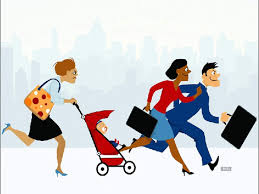
In order to get women back to work and to chug along the path for achievement of gender equality, it is critically important for governments to take critical measures as part of the Covid-19 pandemic recovery, the World Bank has warned.
According to Caren Grown, global director of the World Bank Group, the current gender gaps in the world have been exacerbated by the current health crisis and therefore additional efforts to move women forward need to be taken now more than ever.
“While everyone has faced the same storm, it has really differentially impacted men and women,” Grown said in a television interview.
She said that the pandemic has dealt a mode adverse blow to women both socially and economically even though the death rate from the Covid-19 pandemic has generally killed more men than woman. This is because of the disproportionate representation of women in the industries hit hard by the pandemic such as the hospitality and tourism industries, as well as due to the additional caregiving duties that are typically the responsibility of women.
“It was always called the shadow pandemic, but as we think about recovery we actually have to put in place stronger responses,” Grown said
It could take as long as 150 years for women to achieve gender equality with men, the World Bank had estimated even before the pandemic. That timeline has likely been extended by the current health crisis.
Grown said that one of the critical issues could be ensuring equitable access to vaccines so that the gender disparities could be overcome. One of the measures for that purpose is to ensure that women have the time and means to make their appointments for vaccination.
Apart from that, to get the hardest-hit women back on their feet and into work, it is important to implement financial and caregiving support to women.
She said that it was also important to impose more safeguards to prevent gender based abuse.
“Something that has been exposed during this pandemic is the increases in gender-based violence,” said Grown. “It was always called the shadow pandemic, but as we think about recovery we actually have to put in place stronger responses and preventative measures.”
(Source:www.cnbc.com)
According to Caren Grown, global director of the World Bank Group, the current gender gaps in the world have been exacerbated by the current health crisis and therefore additional efforts to move women forward need to be taken now more than ever.
“While everyone has faced the same storm, it has really differentially impacted men and women,” Grown said in a television interview.
She said that the pandemic has dealt a mode adverse blow to women both socially and economically even though the death rate from the Covid-19 pandemic has generally killed more men than woman. This is because of the disproportionate representation of women in the industries hit hard by the pandemic such as the hospitality and tourism industries, as well as due to the additional caregiving duties that are typically the responsibility of women.
“It was always called the shadow pandemic, but as we think about recovery we actually have to put in place stronger responses,” Grown said
It could take as long as 150 years for women to achieve gender equality with men, the World Bank had estimated even before the pandemic. That timeline has likely been extended by the current health crisis.
Grown said that one of the critical issues could be ensuring equitable access to vaccines so that the gender disparities could be overcome. One of the measures for that purpose is to ensure that women have the time and means to make their appointments for vaccination.
Apart from that, to get the hardest-hit women back on their feet and into work, it is important to implement financial and caregiving support to women.
She said that it was also important to impose more safeguards to prevent gender based abuse.
“Something that has been exposed during this pandemic is the increases in gender-based violence,” said Grown. “It was always called the shadow pandemic, but as we think about recovery we actually have to put in place stronger responses and preventative measures.”
(Source:www.cnbc.com)





